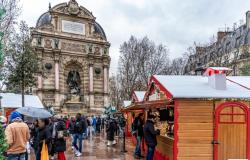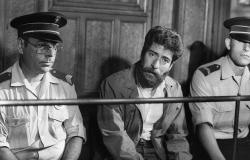From his first novel Code Lupinpassing through Black water liliesor even the famous A plane without herMichel Bussi has one success after another. Several of his novels have been adapted for television as The prisoner island, others in comics, like Die on the Seine.
He also tried his hand at children's literature with the successful series NEO, but also illustrated albums for the youngest.
The Assassins of Dawn, his new novel
Invited by the Puy-en-Velay library team, his visit coincides with the release of his new novel Assassins of the Dawnpublished by Les presses de la Cité.
We will follow the team of Commander Valéric Kancel who must solve the murder of three tourists. An investigation that takes us on a journey to the island of Guadeloupe, its mysteries, its history, its roots.
The style is always breathtaking, carrying readers into the rhythm of the investigation. The scenes are set with precision and the characters analyzed with great psychology.
Photo by E.Dumas
Michel Bussi, this afternoon, you met high school students who worked on your books. Is it a different exchange than with your traditional audience?
“I wrote for teenagers too, a saga called NEO. Some teenagers know me from that. They are 14 years old, they are in second grade, they have also read adult novels. They are much more frank in their questioning, it's always quite amusing to see how they react to a quote-unquote known author.
“If we tell a story to a 3-year-old child, we are not going to tell it with the same words to a 15-year-old child. We will naturally adapt, even if we tell the same story.”
Changing audiences and subjects: children's novels, detective novels, fantasy… Is this a difficult exercise for you?
“No, I do it quite naturally, it's the story that changes, but my way of writing doesn't really change. In any case, I don't ask myself the question. It's a little bit like when you tell a story to a child If you tell a story to a 3 year old child, you are not going to tell it with the same words to a 15 year old child. You will naturally adapt it, even if you tell the same story. story It's really instinctive, there is. no special work on that”
“And when they are 14, 15, 16 years old, it's a pivotal age where they can read all the classic literature, thrillers. In addition, we have a generation of children very manga. They still need a lot to impress them.”
“My big reading experiences are Tolkien. It's what I read when I was 13, 14, 15 years old and which amazed me. The teenagers who read the four volumes (… ) it will mark part of their adolescence.
Photo by E. Dumas
What motivated you to reach this teenage audience?
“When I was a teenager, I was already a big reader. I found that teenage literature, the Sagas, was really a pretty incredible reading experience. My big reading experiences were is Tolkien, it's what I read when I was 13, 14, 15 years old and which amazed me. The teenagers who read the four volumes, sometimes several times, we can say that they discovered. this saga which occupied months of their time. It will mark part of their adolescence. When you are a teenager, it takes on another dimension.
You come to present your novel The Dawn Assassins. Can you tell us about it?
“This novel is a thriller, with investigators who will try to track down a killer who is rampant in Guadeloupe. The story takes place in Guadeloupe. This investigation is inspired by the colonial past of the island. It is both a promise of travel, a promise of strong detective intrigue and a promise of learning things about this island.”
“At some point, things haunt you. That's when the characters beg to get out of your head”
You are showing some disloyalty to your region, Normandy… Why Guadeloupe today?
“I went to Guadeloupe. During and after the stay, everything fell into place. That is to say, I had a plot and I found that the plot could work perfectly in Guadeloupe. I I invented the characters, visited the places. At some point, things haunt you. That's when the characters ask to get out of your head.
We feel in your novel the precision of the words, surely due to your past as a geographer. Did you stay there for a long time?
“Quite a little, 2 times 3 weeks, and it was as a tourist. I had in mind to write this novel, but it was not pure work time. Afterwards, it was a lot of reading work, compilations of documents. I like to mix observation, discussing with people. We also learn a lot, which perhaps not all writers do, from sometimes reading quite difficult things on the sociology of. island, on the economic relations between the communities”
“People on the streets are not necessarily capable of analyzing the impact of slavery on relations between communities”
“There are obviously a lot of things written by researchers. People in the street are not necessarily capable of analyzing the impact of slavery on relations between communities. On the other hand, when you take books that have treated with that, it teaches you countless things. There is a long process of recovery, of digestion.
“You have to put yourself in the position of trying to understand the nuances specific to this piece of land, its history and its inhabitants”
This novel is, certainly, a novel of pure entertainment, but one which I hope is right. Because I feel like I have worked a lot to know all the particularities. Guadeloupe is a complex island. It is an island which has a particular past, with particular community relationships.”
“There are many civil servants, I think, who arrive from France without necessarily taking the time to understand the issues. You have to put yourself in the position of trying to understand the nuances of this piece of land, its history and its people.
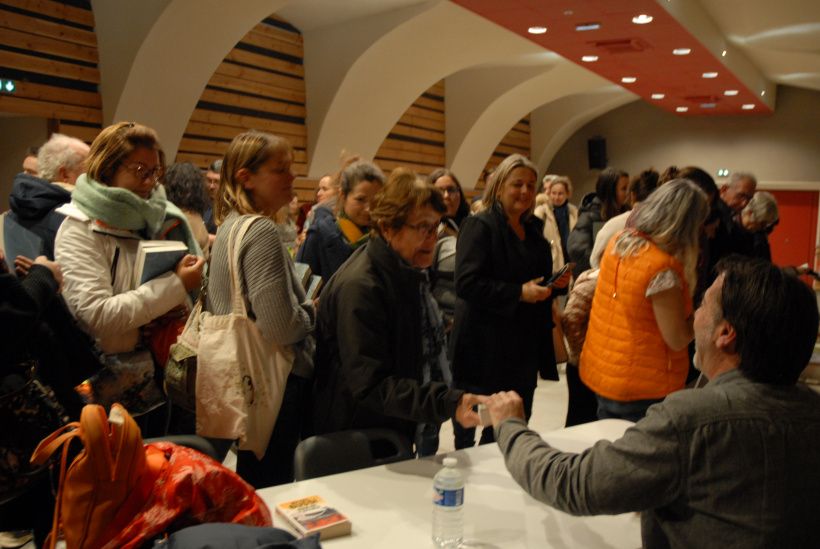
Photo by E. Dumas
You also deal with subjects concerning the personality of the inspectors, who each have their personal problems
“Yes, what also makes a novel charming is that we can convey themes through the characters. One of my inspectors is homosexual. Homophobia is a strong issue in Guadeloupe. We still have homophobic reflexes which are strong, I told myself that through this investigator, it will allow me to talk about homosexuality without caricature.
“We thus touch on social realities which give depth to the characters”
“With Valeric, it is more the theme of domestic violence that is addressed. In the West Indies, alcohol being very present, this problem is not anecdotal. We thus touch on social realities which give depth to the characters. Once again, the issue is not to teach a lesson on domestic violence in Guadeloupe. It is an emotion in relation to the character and also in relation to the police intrigue.
The great strength of your novels is the twists and turns. Do you ever not know the latest twists and turns?
“I try to imagine my twists and turns in advance as much as possible. I think it's necessary if we want the novel to be rhythmic. For example, on The Assassins of the Dawn, I had my ending. And above all, I had important stages with key scenes, those of the murders obviously, but also passages which would punctuate the novel, relaunch it a bit like in a series”.
“I wanted it to be a spectacular novel”
“I wanted it to be a spectacular novel, with some action scenes. I knew I had to get to that scene. It's like a director who is going to have some very strong images in his film. He knows that these images will take a lot of time to shoot, but that's what will make the film stand out.”
“The techno scene left on the pearl beach, large demonstrations of young people, who come to dance, I saw it. We can well imagine these images of the sun and parties. To say to ourselves, we are going to put the small morning a criminal, the emergency evacuation of the party It's a scene that I wanted to write, because we want to see it which must be spectacular, like a great scene from a movie. action is also what punctuates the novel. this desire to have pieces of bravery from time to time.”
“We only have words to bring out the fear, the heat, the tension. But if the scene is well constructed, if the tension is there, everything seems fluid. For the writer and for the reader”
Would you say that action is always present in your way of writing, with a story that is always dynamic?
“Yes, that's clear! Generally, when a scene is good, it's because it's easy to write. A chapter that I can't write is because it's poorly designed in my head. It's work to write! We only have the words to bring out the fear, the heat, the tension. But if the scene is well constructed, if the tension is there, everything seems fluid. the reader”.
“I don't think you can make up for a scene that's not good or doesn't work, or that isn't interesting or that's flat. A style is at the service of the story and not the opposite”
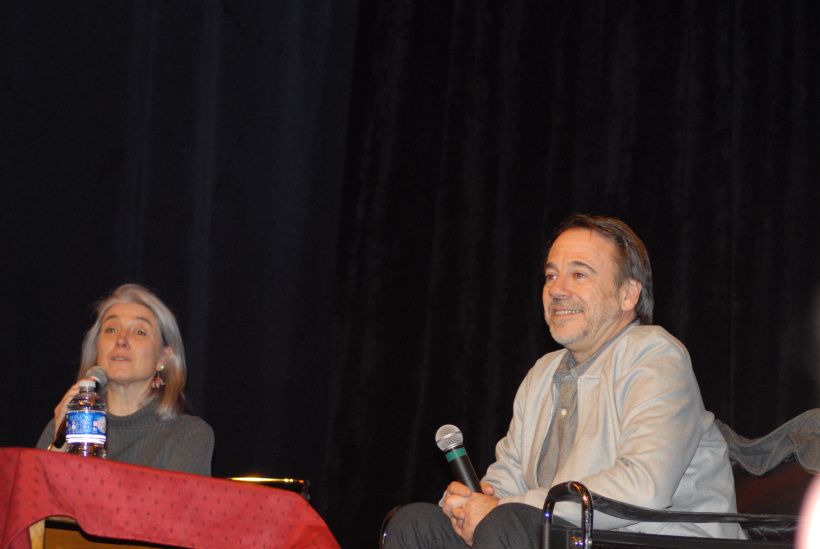
Photo by E. Dumas
You release one novel per year. Are you already on a new project?
“Yes, I'm a little ahead. I tend to write a little faster than I publish. This allows the novels to mature, to prepare them well, to reread them well. I won't know how to work in the “urgency and knowing that I have to publish a book in a month and that I still have three final chapters waiting. I have always worked in advance.”
Can we say that you still have that freshness of a young writer?
“Yes, I think so. As I was published at around forty years old, I had a lot of stories in mind, dreams, things I wanted to write. So, when I became writer, I had the possibility of writing them”
“There is this idea of saying that we can make dreams come true. And that is incredible. To be able to write stories with which I sometimes live for decades, to be able to write them… that they will become books” .
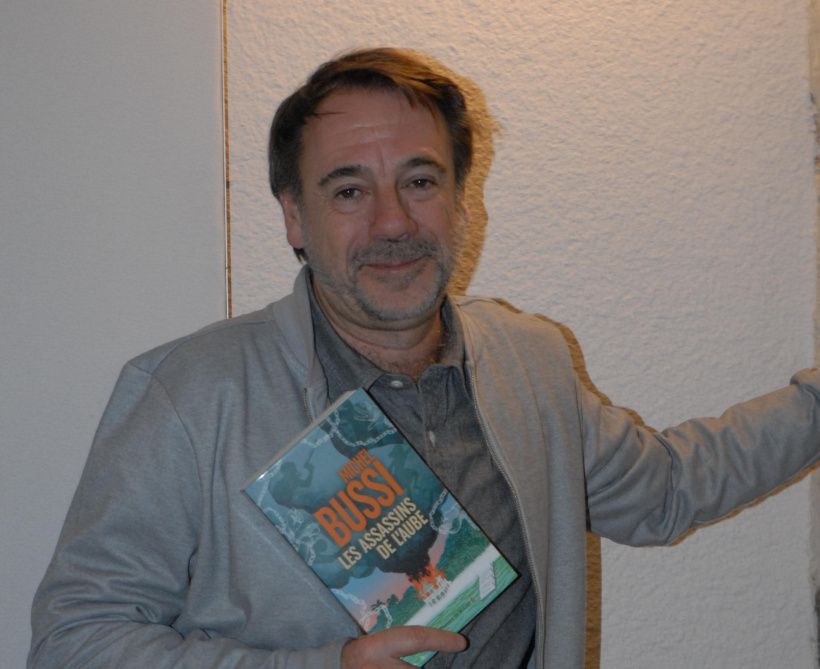
Photo by E. Dumas

![[Interview] Michel Bussi, in Puy-en-Velay, confides his life as a writer and a man](https://euro.dayfr.com/temp/resized/medium_2024-11-15-40a46520cd.jpg)
![[Interview] Michel Bussi, in Puy-en-Velay, confides his life as a writer and a man](https://euro.dayfr.com/temp/resized/medium_2024-11-15-78407ecc0b.jpg)
![[Interview] Michel Bussi, in Puy-en-Velay, confides his life as a writer and a man](https://euro.dayfr.com/temp/resized/medium_2024-11-15-df03de6f09.jpg)
![[Interview] Michel Bussi, in Puy-en-Velay, confides his life as a writer and a man](https://euro.dayfr.com/temp/resized/medium_2024-11-15-0bdbb14f5a.jpg)
![[Interview] Michel Bussi, in Puy-en-Velay, confides his life as a writer and a man](https://euro.dayfr.com/temp/resized/medium_2024-11-15-a682320e9e.jpg)
